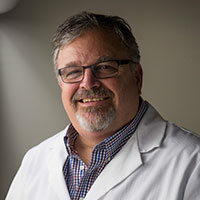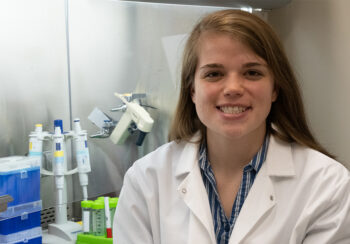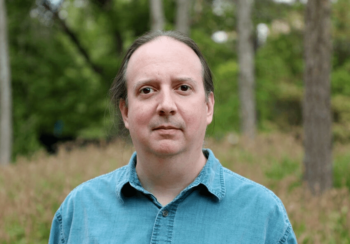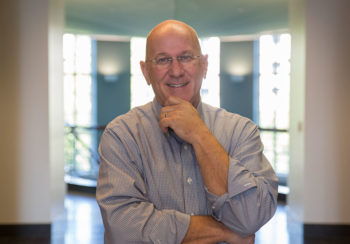Roughly half a million people die every year from malaria.
It’s a significant decrease from the millions who died from the disease each year a decade ago, but with two of every three malaria-related deaths are children. And the parasite that causes the disease is growing resistant to drugs we have to battle it.
Dennis Kyle puts the problem in simple terms: “We have to come up with better compounds to fight the disease.”
And that’s just what he’s doing.
Kyle serves as the director of the University of Georgia’s Center for Tropical and Emerging Global Diseases, an interdisciplinary venture that focuses on tackling diseases that affect millions around the world. His area of expertise lies in developing new drugs and investigating drug resistance mechanisms to see why the drugs we have to combat certain diseases don’t work or stop working.
“Pretty much every drug that we come up with for malaria, within a few years of treating people with it, we get resistance,” says Kyle, the Georgia Research Alliance Eminent Scholar in Antiparasitic Drug Discovery. He worked on the drug that is currently prescribed to people planning to visit Africa to protect them against the diseases and “saw the first case of resistance in the second person we treated.”
In order to better protect travelers, that drug is now being used in combination with other medications, following the protocol set in place by researchers contending with drug-resistant tuberculosis.
An additional concern is that, in about half of the cases of malaria, the parasites enter the liver and become dormant, sitting for weeks, months, even years before being reawakened and thrusting their host into illness.
Working with the Gates Foundation and Medicines for Malaria Venture, Kyle developed a way to mimic the conditions in the liver for drug testing, and his lab is testing thousands of drug compounds to find new ones to serve as replacements for those that become ineffective.
His lab is also testing compounds against brain-eating amoeba, or Naegleria fowleri, a deadly organism found in many of the South’s freshwater lakes and rivers that travels up the nose and into the brain, where it destroys brain tissue. Infections are rare, but almost all cases are fatal.
“It’s terrifying. It’s the most pathogenic of any of the parasites we work on,” Kyle says.
“We have this misconception that tropical diseases aren’t something we have to worry about here in Georgia or the U.S., but it’s amazing how many of them are here.”
– Dennis Kyle, Director, Center for Tropical & Emerging Global Diseases
A more ubiquitous amoeba to worry about is the Acanthamoeba, which is frequently found in contact lens cases. This microorganism enters the eyeball through abrasions on the surface of the eye, causing intense pain and potentially blinding or impairing vision permanently. When growing conditions aren’t ideal, the amoeba hardens and forms a cyst, which protects it and helps it survive until it can revert back to its amoebic form.
The compounds on the market now “probably overestimate” their efficacy in battling the microorganism, and most of them can’t penetrate the surface of the cysts, says Kyle. But his lab is working on a solution that could eliminate the threat of Acanthamoeba to contact lens wearers by destroying the amoeba in both of its forms.
“All these parasites have adapted to infect us, and we have to fight them off somehow,” Kyle says. “We have this misconception that they aren’t something we have to worry about here in Georgia or the U.S., but it’s amazing how many of them are here. With temperatures rising, we might have even more of them.”
As the threat of emerging tropical infectious diseases continues to grow, it becomes more important than ever to face them head on. And Kyle and his lab are committed to doing just that.
To learn more about Dennis Kyle’s research, visit Georgia Trend‘s “Banking on Breakthroughs.”

About the Researcher
Dennis Kyle
Director, Center for Tropical & Emerging Global Diseases
Georgia Research Alliance Eminent Scholar in Antiparasitic Drug Discovery
Department of Cellular Biology
Franklin College of Arts & Sciences
Department of Infectious Diseases
College of Veterinary Medicine





